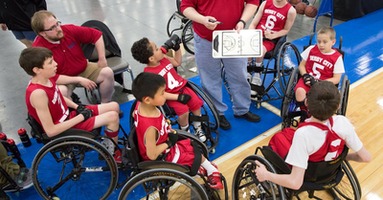
Benefits of a Disabled Parking Permit for Your Autistic Child
Autism Spectrum Disorder (ASD) is a complex neurodevelopmental condition that affects how a person interacts with others, communicates, and experiences the world. Children with ASD often face unique challenges that can make navigating everyday environments difficult. For many families, obtaining a disability pass is a crucial step in ensuring their child’s safety, comfort, and accessibility in public spaces.
This article explores the numerous benefits of having a handicap tag for your autistic child. From reducing stress and sensory overload to increasing safety and improving accessibility, these special passes play a vital role in enhancing the quality of life for children with developmental disabilities and their families.
Understanding Autism and the Need for Accommodations
Before delving into the specific benefits of a disability pass, it’s important to understand the nature of ASD and why accommodations are necessary. ASD is characterized by a wide range of symptoms and behaviors, which can include:
Sensory Sensitivities: Many children with neurodevelopmental conditions have heightened or altered sensory processing, making them more sensitive to lights, sounds, smells, and textures. This can lead to sensory overload, which is overwhelming and distressing for the child.
Communication Difficulties: Children with ASD may have challenges with verbal and non-verbal communication, making it difficult for them to express their needs or understand instructions.
Social Interaction Challenges: Interacting with others can be challenging for children with ASD, who may struggle with understanding social cues, making friends, or participating in group activities.
Repetitive Behaviors and Routines: Many children with ASD engage in repetitive behaviors and rely on routines to feel safe and secure. Disruptions to these routines can cause significant anxiety.
Anxiety and Behavioral Challenges: Anxiety is common in children with developmental disabilities and can manifest in various ways, including meltdowns, aggression, or self-injurious behaviors.
Given these challenges, it’s clear why accommodations are necessary to help children with neurodevelopmental conditions navigate public spaces. A disability tag is one such accommodation that can make a significant difference in a child’s ability to participate in daily activities with reduced stress and greater safety.
The Benefits of a Disabled Parking Permit
1. Reduced Sensory Overload
One of the most immediate benefits of a disability pass is the ability to park closer to building entrances. For children with developmental disabilities, the walk from a parking lot to a store, school, or other public space can be overwhelming due to sensory overload.
Parking further away means more exposure to potentially overwhelming stimuli, such as:
Loud Noises: Busy parking lots are often filled with the sounds of honking horns, revving engines, and bustling crowds. These noises can be distressing for children with auditory sensitivities.
Bright Lights: Many public parking areas are brightly lit, especially at night. Children with visual sensitivities may find these lights blinding or disorienting.
Unpredictable Movements: The movement of cars, people, and even shadows can be unsettling for children with ASD who struggle with visual or spatial processing.
By parking in a designated space closer to the entrance, families can minimize the time their child is exposed to these sensory triggers. This can significantly reduce the likelihood of sensory overload, making outings more manageable and less stressful for both the child and their caregivers.
2. Increased Safety
Safety is a primary concern for parents of children with ASD. Many children with this condition are at risk of elopement, which is the tendency to run away or wander off. This behavior can be particularly dangerous in busy parking lots, where the risk of being struck by a moving vehicle is high.
A disability pass provides access to parking spaces that are often located in safer, more controlled areas near building entrances. These spaces are typically farther away from heavy traffic and provide a more secure environment for children who may be prone to elopement or who have difficulty understanding the dangers of a parking lot.
Additionally, being closer to the entrance reduces the distance a child has to walk, which can help minimize the chance of a sudden elopement or a sensory-triggered meltdown. For parents, this proximity offers peace of mind, knowing that they can keep a closer watch on their child and react quickly if necessary.
3. Improved Accessibility
For children with ASD, accessibility goes beyond physical barriers. It includes the ability to navigate environments that are designed with their specific needs in mind. Children with this condition often struggle with transitions, such as moving from the car to a building. The shorter distance from a disabled parking space to the entrance of a building can help minimize the anxiety and stress associated with this transition. This is particularly important in environments that are unfamiliar or crowded, where the child might feel overwhelmed by the number of people, sounds, and visual stimuli. A handicap tag improves accessibility in several ways:
Easier Access to Public Spaces: Designated parking spaces are typically closer to the entrances of buildings, making it easier for families to access public spaces without the added challenge of navigating through large, crowded parking lots.
Reduced Anxiety: Knowing that they can park in a familiar, designated spot can help reduce a child’s anxiety about going to new or unfamiliar places. This predictability can make outings more manageable and enjoyable for the whole family.
Support for Mobility Challenges: While not all children with neurodevelopmental conditions have mobility issues, those who do can benefit from the shorter distance to the entrance. For children who may tire easily or who have co-occurring conditions that affect their mobility, a handicap tag can provide much-needed support.
4. Decreased Stress for Parents and Caregivers
Caring for a child with ASD can be demanding, especially when it comes to managing public outings. The challenges of ensuring a safe, comfortable, and accessible environment for their child can lead to significant stress for parents and caregivers.
A disability pass can alleviate some of this stress by providing:
Convenience: Knowing that a designated parking space is available can make planning outings easier and less stressful. Parents don’t have to worry about finding a suitable parking spot or dealing with the added anxiety of long walks through crowded parking lots.
Predictability: Children with ASD often thrive on routine and predictability. Knowing that they will always park in the same spot (or at least in the same area) can provide a sense of security and familiarity. This consistency can help reduce anxiety and make it easier for the child to cope with the outing. Over time, the child may become more comfortable with the routine, making future trips less stressful.
Peace of Mind: The knowledge that their child is safer and more comfortable thanks to the accommodations provided by a disabilty tag can give parents peace of mind, making outings a more positive experience for the entire family.
5. Enhanced Participation in Community Activities
Children with ASD may face barriers to participating in community activities, such as going to the park, attending school events, or visiting the library. These barriers often stem from the challenges of navigating public spaces that are not designed with their needs in mind.
A disability pass can help break down some of these barriers by providing easier access to community spaces. With the convenience and safety offered by a designated parking spot, families may feel more empowered to engage in community activities that they might otherwise avoid.
This increased participation benefits not only the child but also the entire family, fostering a sense of inclusion and belonging within the community.
6. Support for Behavioral and Emotional Regulation
Children with ASD often struggle with behavioral and emotional regulation, particularly in unfamiliar or overstimulating environments. Meltdowns, anxiety, and other challenging behaviors can be triggered by the stress of navigating public spaces.
An accessbile tag can support behavioral and emotional regulation by:
Minimizing Triggers: By reducing exposure to sensory stimuli and stressful situations, the disability tag helps create a more controlled and predictable environment. This can prevent meltdowns and help the child maintain a sense of calm.
Allowing for Quick Exits: If a child does become overwhelmed, having a designated parking spot close to the entrance allows for a quick and easy exit. This can be crucial in preventing a situation from escalating and ensuring that the child can retreat to a safe space as needed.
Providing a Sense of Security: Knowing that they have a reserved parking spot can provide a sense of security for both the child and their caregivers. This security can help the child feel more comfortable and less anxious during outings.
7. Legal Protection and Advocacy
Having a disability pass also offers legal protection under the Americans with Disabilities Act (ADA) and other disability rights legislation. These laws ensure that individuals with disabilities, including children with ASD, have the right to access public spaces and the accommodations they need to do so.
The special pass serves as a formal recognition of your child’s needs and provides legal backing if you ever encounter challenges or resistance when using designated parking spaces. This legal protection is crucial for advocating for your child’s rights and ensuring that they receive the accommodations they are entitled to.
8. Facilitating Inclusion and Understanding
Accessible passes play a role in promoting inclusion and understanding of ASD within the broader community. When people see that children with developmental disabilities are entitled to the same accommodations as those with physical disabilities, it helps to raise awareness about the diverse needs of individuals with autism.
This increased awareness can lead to greater empathy and understanding from the public, reducing stigma and fostering a more inclusive environment for children with ASD and their families.
9. Access to Essential Services and Appointments
Access to essential services, such as medical appointments, therapy sessions, and educational programs, is critical for the development and well-being of children with neurodevelopmental conditions. However, the challenges of navigating public spaces can make it difficult for families to attend these appointments regularly.
A handicap tag can make it easier to access these essential services by providing convenient parking close to entrances. This can help ensure that your child receives the care and support they need without the added stress of finding parking or navigating busy parking lots.
10. Empowering Families to Advocate for Their Child’s Needs
Obtaining a diability pass is often the first step in a broader journey of advocating for your child’s needs. The process of securing the pass involves working with healthcare providers, understanding your child’s rights, and navigating the application process—all of which can empower you to become a more effective advocate for your child.
This advocacy extends beyond parking passes to other areas of life, such as securing educational accommodations, accessing therapy services, and ensuring your child’s needs are met in various environments. The experience of obtaining a disability tag can give you the confidence and knowledge to continue advocating for your child’s rights and well-being.
11. Enhanced Quality of Life for the Entire Family
The benefits of a handicap pass extend beyond the child with ASD to the entire family. By reducing stress, improving safety, and increasing accessibility, the tag can enhance the overall quality of life for everyone involved.
- Improved Family Outings: For many families of children with ASD, going out together can be a challenging experience. The stress of managing the child’s behavior, ensuring their safety, and navigating public spaces can make family outings feel more like a chore than a joy. Whether it’s a trip to the park, a visit to the zoo, or a day at the beach, the tag can make it easier for families to participate in activities that are important for their bonding and well-being. This improved quality of life can lead to more positive experiences and memories for everyone involved.
- Increased Opportunities for Social Interaction: Social interaction is an important part of a child’s development, but it can be challenging for children with developmental disabilities to participate in social activities due to the barriers they face in public spaces. A disability tag can help remove some of these barriers, making it easier for children with ASD to engage with their peers and participate in social activities.
How to Apply for a Disabled Parking Permit for Your Autistic Child
While the benefits of a disability tag are clear, obtaining one can sometimes be a complex and confusing process. Each state has its own criteria and procedures for issuing disability passes, and it’s important for parents to have an understanding how to get a disabled parking permit for autism. The application process varies by state but generally involves the following steps:
Consult with a handicapMD Healthcare Provider: The first step is to discuss your child’s needs with a handicapMD healthcare provider. They will need to complete a medical certification form that verifies your child’s eligibility for a handicap pass based on their ASD diagnosis and related challenges.
Obtain the Necessary Documentation: In addition to the medical certification, you may need to provide additional documentation, such as proof of residency, your child’s birth certificate, and your identification.
Submit the Application: Complete the application form provided by your state’s Department of Motor Vehicles (DMV) or equivalent agency. Be sure to include all required documentation and any applicable fees.
Receive and Use the Permit: Once your application is approved, you will receive the disability pass, which typically comes in the form of a placard or license plate. Make sure to display the special pass according to your state’s guidelines whenever you park in a designated space.
Renew the Permit as Needed: Accessible passes may need to be renewed periodically, so be sure to keep track of the expiration date and complete the renewal process on time.
For more detailed information on how to apply for a disability tag for your autistic child, visit HandicapMD.com.
Conclusion: Enhancing Quality of Life Through Accessibility
A disabilirt tag offers numerous benefits for children with ASD and their families, from reducing sensory overload and increasing safety to improving accessibility and supporting behavioral regulation. By providing a more controlled and predictable environment, these passes play a crucial role in enhancing the quality of life for children with neurodevelopmental conditions.
For parents, obtaining a handicap pass is not just about convenience; it’s about ensuring that their child has access to the accommodations they need to navigate the world safely and comfortably. If you believe your child could benefit from a disability tag, consider starting the application process today.
Remember, advocating for your child’s needs is a vital part of ensuring their well-being and helping them thrive in a world that can sometimes feel overwhelming. A disability pass is one important tool in your advocacy toolkit, offering tangible benefits that can make a real difference in your child’s daily life.
References
- National Conference of State Legislatures (NCSL). (2022). Disabled Parking Permit Laws. Retrieved from https://www.ncsl.org/research/transportation/disabled-parking-permits.aspx
- Centers for Disease Control and Prevention (CDC). (2023). Autism Spectrum Disorder (ASD). Retrieved from https://www.cdc.gov/ncbddd/autism/index.html
- American Academy of Pediatrics (AAP). (2022). Clinical Practice Guidelines for Autism Spectrum Disorder. Retrieved from https://pediatrics.aappublications.org/content/144/3/e20193447
- Autism Society. (n.d.). Sensory Sensitivities and Autism. Retrieved from https://www.autism-society.org/sensory-sensitivities-and-autism/
- Disability Rights Education & Defense Fund (DREDF) - Understanding disabled parking permits and autism. Available at: https://dredf.org/legal-advocacy/disabled-parking-permits
- National Institute of Neurological Disorders and Stroke (NINDS) - Autism spectrum disorder: An overview. Available at: https://www.ninds.nih.gov/Disorders/Patient-Caregiver-Education/Fact-Sheets
- The Arc - Advocating for the rights of individuals with developmental disabilities. Available at: https://thearc.org/what-we-do/advocacy/
.png)






